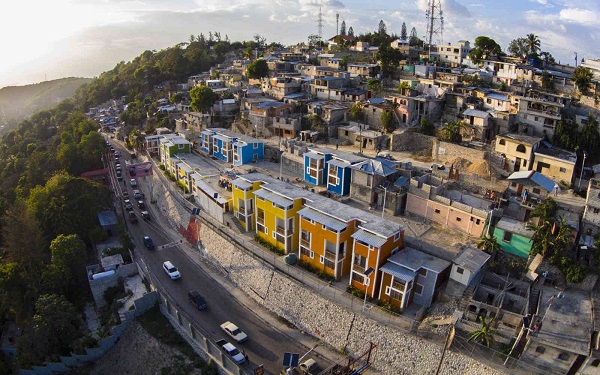Ghana’s quest to tackle it’s over 2 million housing deficit has been given a major boost by the decision of the United Nations Office for Project Services to spend $5 billion on the construction of 100,000 housing units across the country.
The project will be completed within 10 years. 6,000 housing units will be constructed in a community called Amasaman, near Ghana’s capital, Accra.
The ultramodern community is expected to be Eco-friendly, fitted with high-tech solar panels.
According to Ghana’s deputy works and housing minister, Barbara Ayisi latest statistics showed that 60 percent of urban dwellers can only get decent homes with the support of the state, whiles 35 percent are not in a position to get their own homes even with assistance from government.
She claims only 5 percent of urban folks can acquire their own homes with no assistance from the state.
Stalled housing projects
The decision by governments not to expedite works on housing projects started by their predecessors has been a major setback in addressing housing challenges.
Many projects have stalled partly because of political reasons.
The Saglemi housing project in Prampram, Borteyman Housing project in Greater Accra and the 5 thousand housing unit project in Kumasi.
The narrative of UNOPS’s 100,000 unit project is likely to be different because it is fully funded by the UN with no financial commitment from the government of Ghana.
Ghana and Kennya are the only beneficiaries in Africa. According to Executive Director of UNOPS Grete Faremo “the minimum cost of a housing unit will be around 27 thousand dollars”.
UNOPS also promises to ensure availability a favorable mortgage system to help in the acquisition of the properties.
The impact of the project on the Economy
Sustainable Housing Solution which has partnered UNOPS for this project will construct 3 factories to manufacture building materials in parts of the country.
This is expected to provide 100,000 direct and indirect jobs. Chairman of SHS. Allen Zimbler says “Ones the factory is established we start producing bar panels, this is an innovative technology so the time we take to build the house is quicker and also it’s incredibly robust so if we have extreme weather events these houses will not be affected.”
There are high hopes this project should be resolve the housing crisis in Ghana.
Source: Africafeeds.com



